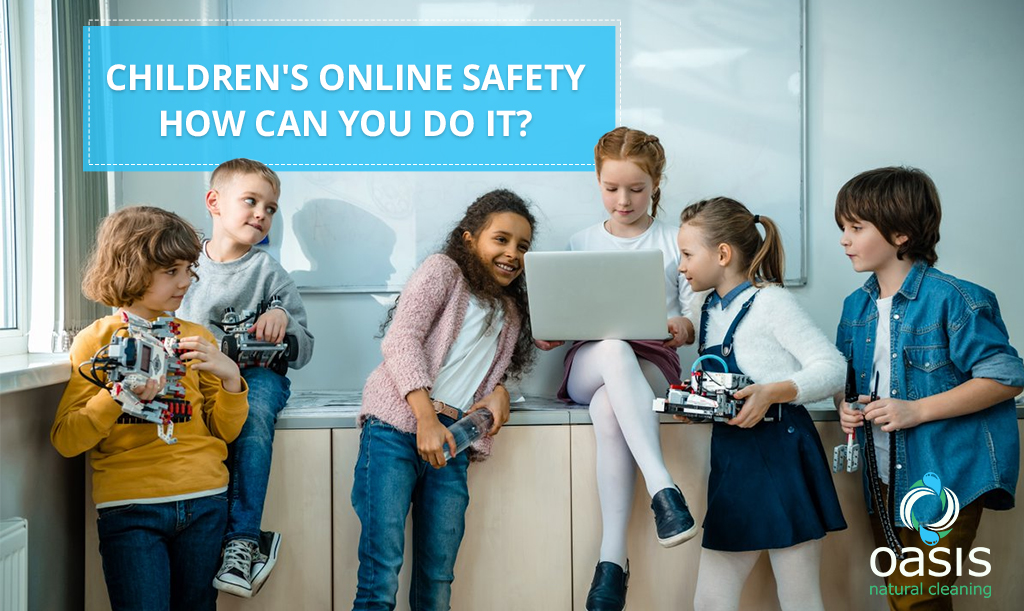
Let’s face a harsh truth–even if the internet can help with your child’s education and entertainment, it can be a nasty place. One click of your kid’s search for ‘bunnies’ can turn up other things that aren’t lovely animals.
Between malware, explicit content, predators, and other harmful factors, parents find themselves in an endless cycle of doom and gloom as they keep their children safe from threats online.
It is indeed a tricky situation without a perfect solution, and it can be difficult to know where to start. You can opt for antivirus software, parental blocks, child-friendly browsers, and the plan to entirely ban the internet altogether.
The first thing you need to keep internet safety for children is for you to be educated about the possible threats they can be exposed to and the measures you can apply to neutralize them.
Here are the most common internet safety facts, hazards that your children might encounter on the internet and what to do about them.
Password Hacking and Sharing
At a young age, children can trust easily, so it’s not much of a surprise that they sometimes share their private passwords with friends. Unfortunately, this can lead to your kid’s account being hacked. The hacker may pose as your child and post distressing or embarrassing content on social media or send threatening private emails that people may think came from your kid.
Continuously update your antivirus protection.
It’s an essential thing that your child doesn’t share his or her passwords, but it’s also as critical to install antivirus software and update it. It is one of the best ways to secure all your gadgets and devices against hackers and cyber threats.
Use strong, unique passwords.
It can be a combination of uppercase and lowercase letters with numbers and characters. Frequently remind your young one not to share their passwords with anyone but you. Also, don’t forget to make sure that their usernames aren’t easy to guess.
Cyberbullying
Cyberbullying is a common online threat, and it is indeed no joke. The Cyberbullying Research Center says that there is more than 27% of children bullied online. In grave instances, this kind of act can lead the victim to commit suicide.
Report the harassment.
Often remind your child to be open to you about any offensive or hurtful messages they receive, and make them feel that they’re not alone. Keep a record of the harassment and if necessary, report the problem to your local law enforcement agency.
Block the bullies.
If your kid is being harassed through email, social media, or instant messaging, strengthen the account’s privacy setting and block the cyberbully immediately. You can go to stopbullying.gov to learn more about the prevention of cyberbullying.
Online Predators
You may have heard of cases where teens receive unwanted solicitation through the internet. Predators usually use social media to learn everything about their victims like the home address, likes and dislikes, school, and event location.
Monitor your child’s online activities.
Keeping track of your kid’s online activities, periodically checking their social media accounts, and talking to them about anything that bothers them is a great way to protect them. You can use apps to track their web history, messages, phone calls, and GPS location.
Openly talk about the issue.
Make your child feel comfortable talking about the issue, and use age-appropriate language when explaining the threats of online predators. Help them secure their social media accounts and tell them to inform you immediately if something like this happens to them.
Identity Theft
More often than parents realize, kids are the most usual victims of identity theft. They are primary targets because they tend to post a lot of personal information online. Plus, they also have clean credit records.
Keep personal data private.
Never allow your kid to post things like their full name, birthday, or complete address publicly. Tell them not to give out information without asking you first and refrain them from taking online quizzes or surveys that require personal data because criminals can use these to steal identities.
Often check credit reports.
Be aware of the signs of identity theft and often check your kid’s credit report at least once a year. This can alert you to possible fraud and give you enough time to correct their credit before they need to use it. In case your child becomes a victim, you can file a complaint with the IC3.
Your children are your most prized possession, and you would do everything to protect them in the real and virtual world. Take these tips to help you do the task! Monitoring their online activities can take much of your time, so leave other chores like cleaning your house to the professionals and save your time keeping your kid safe!
